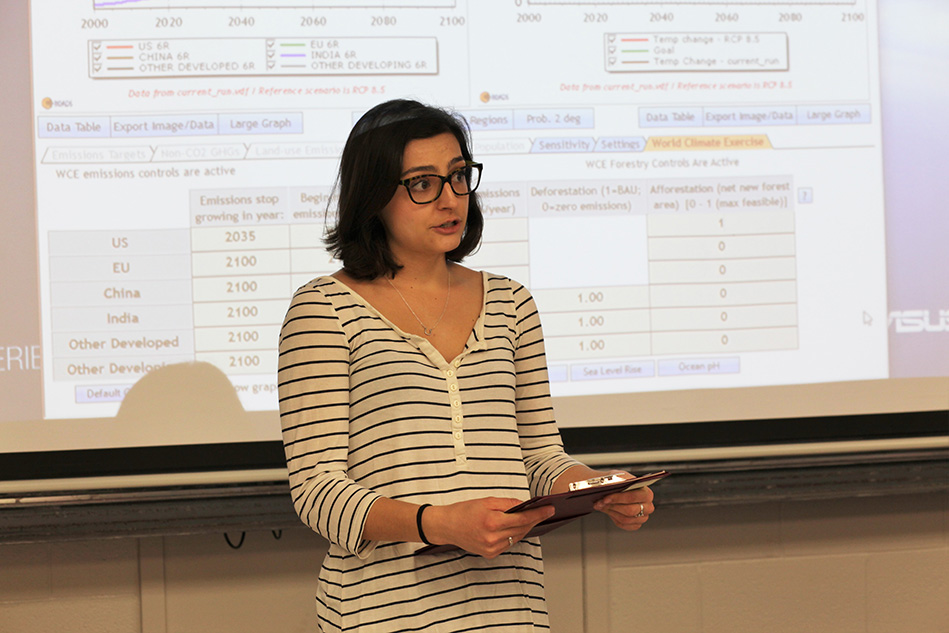Political Science students try to ‘save the world’ in innovative simulation

For Robert O’Brien’s third-year Political Science class, saving the world is no longer an abstract idea.
In last semester’s Issues in International Relations & Global Public Policy class, O’Brien’s students were asked to engage in a climate change simulation using C-ROADS (Climate Rapid Overview and Decision Support Simulator).
The students were organized into teams representing countries or groups of countries, with the ultimate goal of negotiating an international climate change agreement to save as much of the world as possible from the disastrous effects of climate change, including rising sea levels that threaten to swallow entire nations.
This innovative approach to teaching helps the students learn traditional research skills as they prepare for the negotiation, but the simulation itself also gives students a hands on demonstration of how politics works at a global scale, and illustrates the challenges involved in reconciling equally valid international interests and positions.
O’Brien selected this simulation as a good example of how science and policy intersect, and how global decision-making impacts the world around us.
In addition to learning critical research skills and the science around climate change, O’Brien’s students developed insights on the morality, economics and politics of climate change
“The students take on the views of the countries they represent so they develop an empathetic as well as intellectual understanding of the international problems involved in dealing with climate change. The difficulties of the challenges we face hit home as they try and resolve the problem and bring the negotiations to a successful conclusion.”
Third-year Political Science and Communication Studies student Dragana Trkulja was one of the delegates representing the United States in the negotiations. She says that she’s walked away from the class with a greater understanding of the difficulties of establishing international policy.
“The greatest challenge was realizing the difficulties with balancing the various interests, internally with the political parties and self-interests and externally with various countries, that all have very different interests and agendas to accomplish.”
But did the class succeed in saving the world?
In the end, three rounds of negotiations were held, and the first round resulted in Florida being swallowed by rising oceans.
O’Brien says, “In the first round our deliberations produced a projected increase of 6 degrees of warming rather than our target of 2. In our second round we were able to get down to 3 degrees.”
In the final round, the class was able to achieve their goal of 2 degrees of warning. That’s cause for celebration for the students, but O’Brien reminds them that “that would save parts of the world, but still leads to the destruction of a number of small island states and low-lying areas.”


